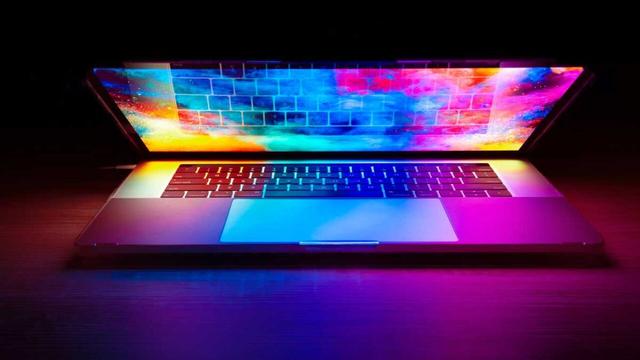The internet is the world’s largest computer network, linking millions of computers. It has become an integral part of our daily lives. The effective use of the internet makes our lives easier, faster, and simpler. It is critical to understand that the Internet is a global network of physical cabling, which can include copper telephone wires, television cables, and fiber optic cables. Even wireless connections, such as Wi-Fi and 3G/4G, rely on physical cords to connect to the Internet. The internet provides us with facts and data, as well as information and knowledge, to aid in our personal, social, and economic development. All of this is possible by connecting a computer to the Internet, generally known as going online. When someone says a computer is online, it simply means it is linked to the Internet. The internet can be used for a variety of purposes; however, how we utilize the internet in our daily lives is determined by our particular needs and goals. It’s no secret that the internet is becoming an increasingly important part of our daily lives.
Problem statement
The Internet not only became one of the most widely utilized commodities, but it also improved dramatically, becoming the most marketable entity since then. We used to live without the internet, just as we used to live without electricity but in the contemporary it is unimaginable. A huge number of researches have been done on the importance of internet, it’s role in our livesbut my research is specifically focused on how has the pandemic highlighted that the internet is no longer a luxury but a necessity in today’s world.
Objective
Theoretically, the purpose of this study is to determine the following research objectives:
Research question
How has the pandemic highlighted that the internet is no longer a luxury but a necessity?
Literature review
The literature is based on detailed analysis of internet and the use of internet in our lives. The importance of internet has been discussed in various research papers. Based on available literature, it is critical to expand knowledge in this area. As a result, this study is proposed to be a comprehensive study based on detailed analysis of how the internet is not a luxury anymore and how it has become a necessity, as the pandemic has proved.
Methodology
To achieve this research’s major objectives, I have used an interpretive approach that focused on the importance of internet in our lives that has been highlighted during the pandemic and has changed the perception of humans about the access to the internet. The research is deductive in nature as it examines the data which is qualitative and narrative in nature and it is obtained from the credible secondary sources consisted of official documents, academic studies, articles and reports.
Research Analysis

There are some things in life that we perceive to be a necessary part of our daily lives. However, a few years ago, the same things were either non-existent or viewed as luxury rather than a necessity – the internet being one of them. Internet access is a basic requirement of modern life for me and most individuals I know. When the internet first arrived in Pakistan in the 1990s, it was not only pricey, but many people predicted that it would not remain long owing to its complexities. Fortunately, they were all incorrect. The Internet not only became one of the most widely utilized commodities, but it also improved dramatically, becoming the most marketable entity since then. We used to live without the internet, just as we used to live without electricity or indoor plumbing back in the days, but life with each of these things is so much better than life without them that we all agree that everyone should have them. But from 2000’s the internet has become critical for day-to-day tasks. It is the only way we can communicate with and care for close friends and family living far away, most of the institutions have started providing services online, For example, if we want to take admission in a university, we will have to fill an online application form, but it is only possible if we have internet access. So now, we have compelling reasons to recognize a right to Internet access. If there was any doubt about how important internet access is, the current coronavirus outbreak might has eliminated it.
When the COVID-19 pandemic broke out earlier this year, much of the world went online, hastening a decades-long digital change. Children with at-home Internet access began attending class remotely; many employees began working from home. Universities also moved teaching and tutoring online, which has produced issues for students who do not have or do not have enough Internet connectivity. During the pandemic, most people could only work if they can do so online. Those who do not have access to the Internet are unable to apply for jobs that need them to work online. Working and learning from home, have all been made possible by the internet. Seeing friends and going to the doctor without exposing yourself or others became possible during the lockdown because of the access to the internet. The worldrecognized that the unavailability of internet is a dilemma for people and states.
Furthermore, practicing political rights like as free speech and free assembly are only feasible virtually under quarantine. Access to politically relevant information, such as scientific research and other information that helps citizens to form their own opinions about how the government is handling the pandemic, is also important. These examples demonstrate that the Internet provides critical infrastructure for many essential activities in the current pandemic. In such a context, a lack of effective internet access jeopardizes individual liberties and is thus particularly a serious social concern. Our dependence on internet during the coronavirus crisis has reshaped how we will act once the pandemic has passed. The real lesson is that we have made the internet an essential element of our personal and professional life. This isn’t about to change. The pandemic has introduced a new narrative or worldview in which we rely on the internet to bring economic and social activities to us rather than us going to them.
Soaccess to Internet is not only one of the most visible, but also one of the most shocking inequities shown by COVID-19.Thismight surprise you but even in developed countries, internet availability is frequently less than you might expect. Take, for example, the United States. More than 6% of the population (21 million people) do not have access to the Internet. In Australia, this figure is 13%. Even in the richest countries, the internet cannot keep everyone connected. In addition, 3.7 billion individuals do not have access to the internet. The vast majority live in underdeveloped countries. More than one billion children worldwide are currently barred from attending school due to quarantine procedures. Even though teachers hold daily online lessons, many of these children are unable to participate due to the unavailability of Internet.
When we say internet access is a necessity not a luxury, this narrative is also supported by the increase innumber of internet users over time.Since 2005 to 2019 there has been a sharp increase in the penetration of internet.
According to Statista’s report, the statistics of internet penetration globally are as follows:
Number of internet users worldwide from 2005 to 2019 (fig 1)
There were 4.66 billion active internet users globally in January 2021, accounting for 59.5 percent of the global population. 92.6 percent (4.32 billion) of this total accessed the internet. A world without the internet is now unthinkable. Now the internet, which connects billions of people globally, is a key pillar of the modern world.
The focus on the pandemic should not cause us to lose sight of how important the Internet has become during normal days as well. Online access has become part of the routine to the majority of us. Every day, we utilize the Internet for a variety of purposes, both significant and insignificant. Most of us couldn’t fathom working or communicating with loved ones without it. This is not the case for a large percentage of people. A reclaimable right to basic internet access would significantly improve their lives. Along with the daily use, Covid-19 pandemic has demonstrated unequivocally that the Internet is no longer a luxury, a convenient addition to those who can afford it. Internet access, on the other hand, has become a basic requirement. All we need to do is shift our perception of internet access from a luxury to a necessity.
Recommendations and Conclusion
To sum up everything that has been discussed so far it is past time for us to acknowledge the fundamental relevance of internet access. It is the right time to value internet access in the same way that we value electricity, drinking water, and paved roads. Each is necessary for a healthy and prosperous society, which is why we spend so much money to make these requirements available across the country. To be sure, the problem of providing and regulating inexpensive internet access for everyone is complex and costly, but it is not impossible. Governments should work on making the availability and affordability of internet a possibility for the people- because there is no denying to this; that in the contemporary world the access to internet has become a necessity.









